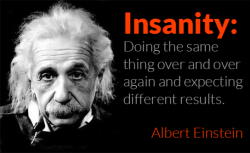
Over the past eighteen months, I have worked alongside many schools as they reflect on the pedagogic practice that has been their mainstay. Differentiation has come under particular scrutiny and prompted a forensic review of its impact on pupil outcomes.
Traditional Differentiation
Traditional differentiation is predicated, in part, by an assumption that we are each born with a given amount of fixed and measurable intelligence. As a consequence, there may be many children ‘identified’ as ‘less able’ who have remained in the same carefully differentiated groups/sets throughout their time in school. Recipients of one intervention after another, with little sustained and significant impact, these children frequently rely on adult support in undertaking less cognitively demanding tasks. This often contributes to an over-dependence that results in learned helplessness. Equally, there are children considered ‘more able’ whose resilience diminishes as they clamour to complete a quantity of tasks that lack challenge and opportunities for deep learning.
What could differentiation look like?
In ensuring that all children meet, with security, end of year/key stage expectations, we need to consider how we can best support and scaffold learning. The choice of resources and presentation of the tasks are critical. Pre-teaching, long the mainstay of effective practice with learners new to English, merits a great deal of consideration. By providing bespoke input and support for individuals/groups prior to the main teaching, gaps in learning and misconceptions can be addressed. Precise follow up, to embed the learning and allow for additional practise, is paramount. Underpinning the success of pre-teaching, and the teaching that follows, is the accuracy with which assessment is used to determine a child’s knowledge and understanding.
Is your differentiation fit for purpose?
In light of the expectations of the National Curriculum, a critical evaluation of established practices, and the extent to which they contribute to a climate where ‘equity is high’ (Tim Oates), is essential. After all, ‘insanity is doing the same thing over and over and expecting different results’. (Einstein)

Continue the Conversation
For related resources and publications, get in touch with the Focus Education office on 01457 821 818.
Since starting her career almost 30 years ago, Sarah has successfully undertaken a range of roles including that of head teacher, executive head teacher, Local Leader in Education and School Improvement Partner. She has been recognised by the DfE for securing rapid improvement in pupil outcome, and by Ofsted for her ‘inspirational’ leadership.






